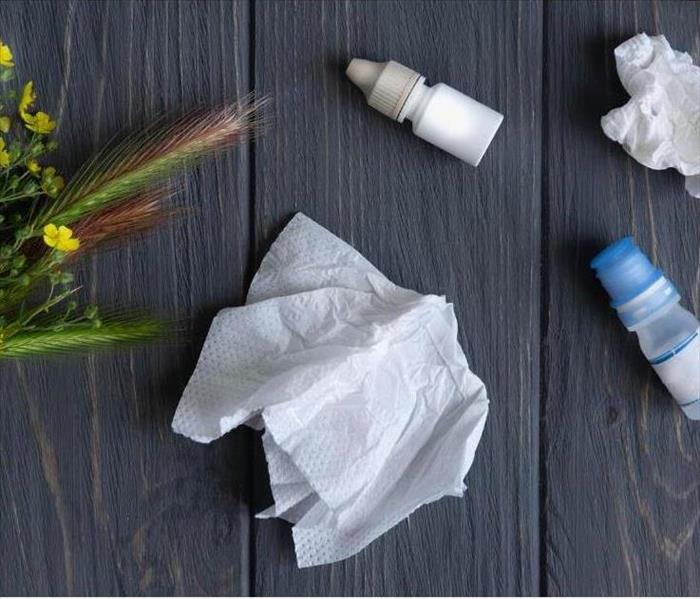Allergy Proof Your Home
3/27/2024 (Permalink)
As the seasons change, so do the challenges homeowners face. One of the most prevalent issues during spring and summer is the onslaught of pollen and seasonal allergies. While many people focus on protecting themselves from outdoor allergens, it's equally important to safeguard your home against these invaders. At SERVPRO®, we understand the importance of maintaining a healthy indoor environment. Here are some steps you can take to defend your home against seasonal allergies
Understanding Seasonal Allergies:
Seasonal allergies, often triggered by pollen from trees, grasses, and weeds, can wreak havoc on your health and quality of life. Symptoms such as sneezing, congestion, itchy eyes, and fatigue can make it difficult to enjoy the beauty of spring and summer. However, by implementing preventive measures, you can create a sanctuary within your home where you can breathe easy.
Sealing Your Home:
One of the first lines of defense against pollen infiltration is to seal your home effectively. Inspect doors and windows for any gaps or cracks that may allow pollen to enter. Replace worn weather stripping and apply caulking where necessary to create a tight seal. Additionally, consider installing pollen-resistant screens on windows to filter out airborne allergens while still allowing fresh air to circulate.
Maintaining Cleanliness:
Regular cleaning is essential for keeping allergens at bay. Dust and vacuum your home frequently, paying special attention to areas where pollen may accumulate, such as carpets, rugs, and upholstery. Use a vacuum cleaner equipped with a HEPA filter to trap even the smallest particles. Wash bedding, curtains, and other fabrics regularly in hot water to remove pollen and other allergens. At SERVPRO of Upper Bucks, our professional cleaning services can provide a thorough and efficient solution to ensure your home remains free of allergens.
Filtering Indoor Air:
Investing in a high-quality air purifier can significantly improve indoor air quality by capturing pollen, dust, and other airborne particles. Choose an air purifier with a HEPA filter and consider placing it in frequently used rooms for maximum effectiveness. Additionally, regularly replace the filters in your HVAC system to prevent pollen from circulating throughout your home.
Professional Restoration Services:
In addition to these preventive measures, sometimes unforeseen circumstances such as water damage or mold growth can exacerbate indoor allergen issues. That's where SERVPRO comes in. Our team of trained professionals specializes in water damage restoration, mold remediation, and indoor air quality improvement. Whether you're dealing with a flooded basement or a persistent mold problem, we have the expertise and resources to restore your home to its pre-damage condition quickly and efficiently.
As allergy season approaches, taking proactive steps to safeguard your home against pollen and other allergens is essential for maintaining a healthy indoor environment. By sealing your home, maintaining cleanliness, filtering indoor air, and utilizing professional restoration services when needed, you can create a haven where you can breathe easy and enjoy the beauty of spring and summer. At SERVPRO of Upper Bucks, we're here to support you every step of the way on your journey to a healthier home.




 24/7 Emergency Service
24/7 Emergency Service

